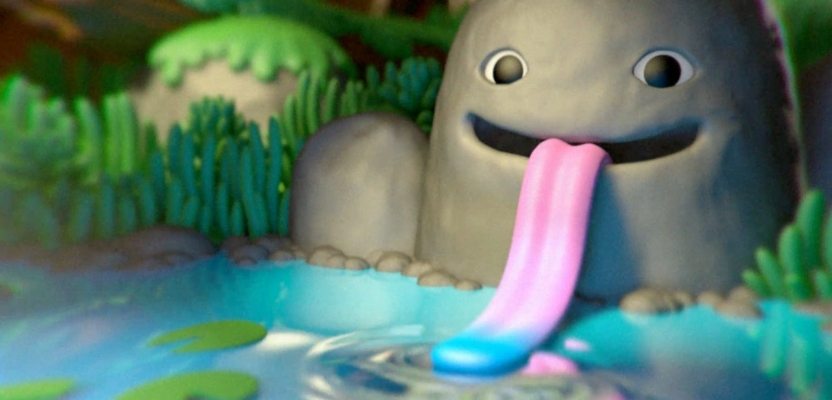This week, we sat down with Ghost Robot and it’s far less confusing than it sounds. CEO and Founder and Zach Mortensen and CCO Mark DePace form the creative partnership at the heart of the Brooklen-based content studio that’s won more D&AD awards than you’ve probably had hot dinners.
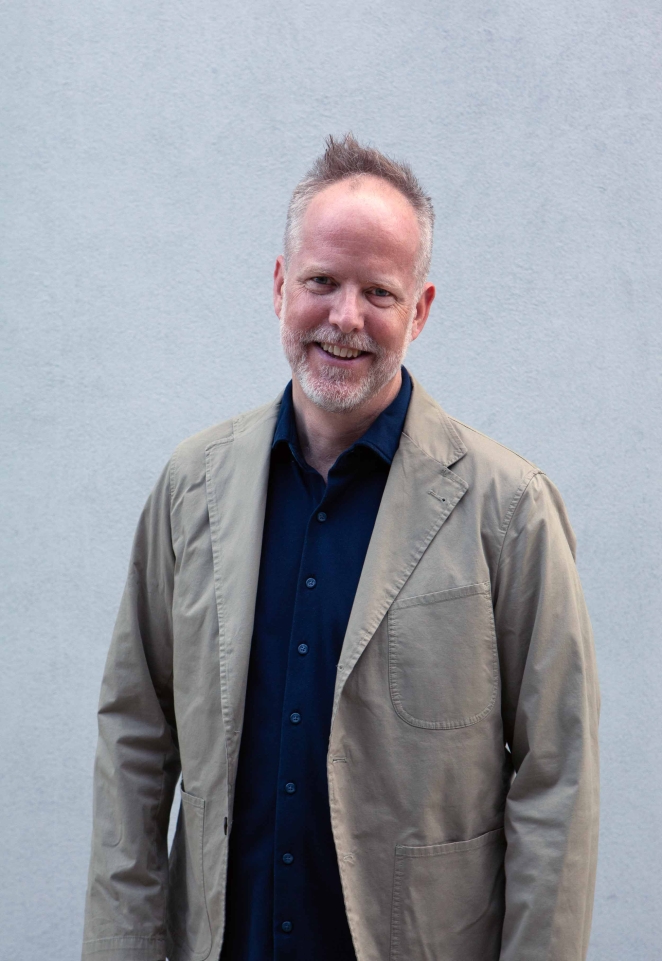
Zach Mortensen
Tell us a bit about your role! Is there a “typical” day?
Zach: I’m full-time in the office, even though most of the team is hybrid. So I’m often the first one in and make the first coffee pot. From there, I sit at my desk in the bullpen with the rest of the production and creative teams. I live in the middle of it. While I’m across all departments, I directly oversee operations, business and legal, and tech platforms and tools. My mornings are full of meetings around project statuses, business development, and sales and marketing initiatives. I’m also head of the original and long-form content production operations, so I check in with those production and post teams. If I can avoid scheduling meetings through lunch, I try to do a little media industry or technology and tools research while eating at my desk. Then, I tend to put on headphones and dive into contracts, budgets, and accounting. I leave a little earlier than everyone to manage the after-school and family dinner hours before logging back in to revisit the end-of-the-day communications and updates.
Mark: I oversee creative output across all of advertising work, including marketing and branding for Ghost Robot. I have my own satellite office upstate in Hudson, NY. I sit with our project manager, creative director, art director, and a junior creative. My typical day involves dropping my kid off at school, taking my dog for a walk, and then getting to the office by 10AM to jump into a daily creative check-in with the team. Throughout the week there are a number of other standing meetings where we discuss production, marketing, and new business. After our meetings, I usually try to knock off a few things on my checklist, and then spend my afternoon on any project I am leading directly. It’s usually some kind of new business pitch. Towards the end of the day, I try to get eyes on any deliverables going out that night then it’s usually off to some kind of youth sports practice or event.
What was the biggest challenge in getting to your current position?
Zach: Starting on the lowest rungs of film production and working my way up, I know the ins and outs of a film set backward and forwards. The biggest challenge of getting to my current position has been slowly crossing the bridge into full-time business management and development - shifting gears from location shoots, call times, crews, and film stock to P&Ls, MSA’s, negotiating influencer agreements, and building staffing models around business strategy.
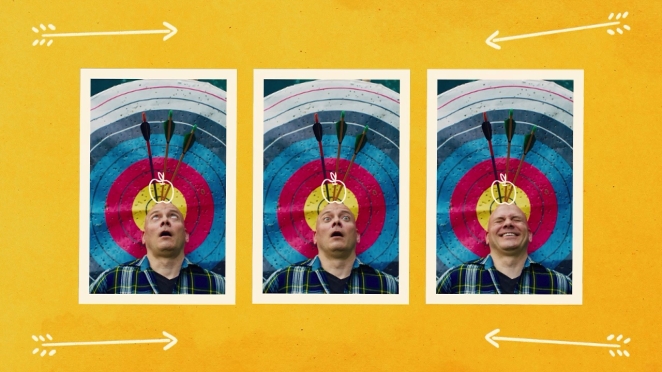
Mark: I wasn’t trained as a “Creative” and spent too long believing I could only voice my opinions if it was in service of helping the traditional “creatives”. For a very long time I operated behind the scenes, until I got the confidence to start pitching and winning on my own. I still try to maintain a balance of collaboration / doing it myself, but gaining confidence was definitely the hardest part!
What is your personal background, and what role did it play in your career?
Zach: One of four children growing up with a single parent, I’ve been producing and managing a team (siblings) since I was ten years old. I only got a car so I could shuttle after school and manage schedules. It was a natural progression to producing. Oh, and I love making things. I think that’s what Mark and I bonded over in the early days: just making things, getting our hands dirty, rolling up our sleeves, and digging in.
Mark: I always loved being a part of a team and competing - I played a lot of sports. My parents really stressed academics and I was good at math and a very strong writer but I didn’t love school. I was and Eagle Scout and loved all the little skills I picked up and the confidence to solve problems but found the structure and organization to be stifling. I played music but knew I wasn’t a musician or an artist, so didn’t really know what to do with the creative part of myself until I started making little movies in high school and realized it involved all the things I loved - teamwork, problem solving, music, design, arts & crafts. All that just really came together in film school and I finally felt like I could apply everything I had done in my life into one pursuit.
What is your biggest career-related win? What is your biggest loss?
Zach: Sometimes the big wins and big losses happen in the same job. We did an incredible project earlier in our career - a huge budget for us at the time for a huge upcoming video game with a great client. It was one of those projects where the client said don’t hold back, we engaged you guys for the style of work you do. The project looked amazing, it was entirely 3D animated with an incredible look from our 3D partners. While sitting in the online suite we got word that someone higher up the chain on the client side who had not seen any of the boards, animatics, concept art, frame blasts, or rough cuts finally took a look and said, this doesn’t align with the rest of the campaign materials we’re doing. The project died in the conform. But it wasn’t just that it didn’t get released. As a young company, it was going to be a critical follow-up to some smaller, well-received, award-winning work we had done. Even though at the time it felt like we had lost critical brand awareness opportunities, it was a huge win for recognizing our creative, production and post capabilities and building on internal workflows. It also really opened our eyes to the internal politics of brand partners and set us up for having to sometimes ask those hard questions throughout the creative process, like “Have all the stakeholders weighed in?”
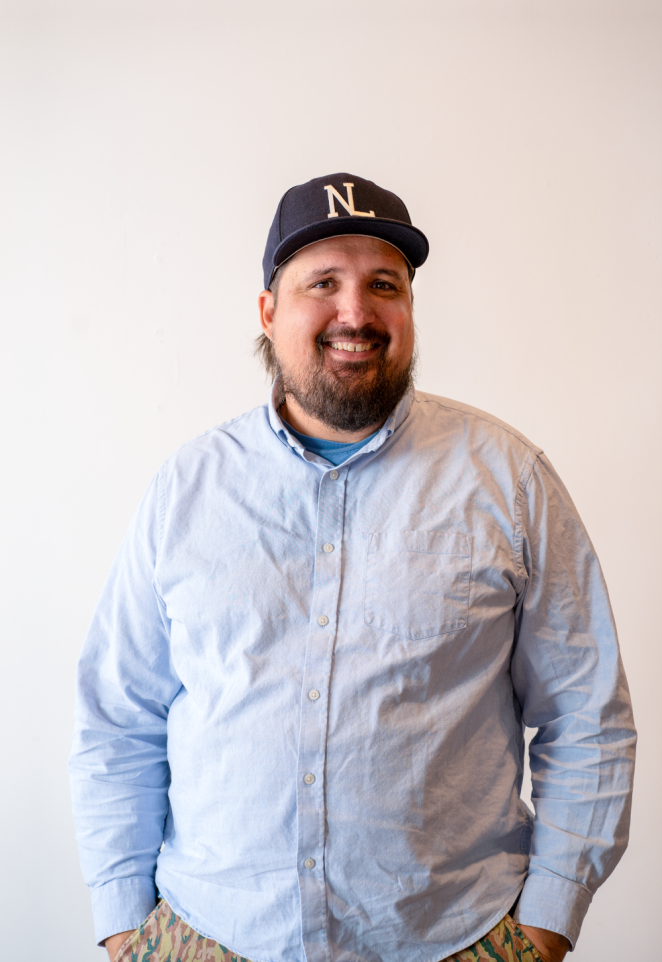
Mark DePace
Mark: This might sound cheesy, but just being around for 18+ years seems like the most significant win. It’s really easy getting wrapped up in what other companies are doing and who won the job that you lost, who won this award or got a profile in this magazine. But then you look back at it a lot of those companies aren’t even around anymore or the people you were competing with have bounced around and maybe not even in the industry anymore. I wish I had this perspective sooner! There have been so many losses - more losses than wins. The biggest loss was a huge pitch for one of the big tech companies. We poured our heart out into it. Did illustrations, shot a test video. It was amazing. The clients literally clapped for us when we were done presenting. Then immediately after the meeting they found out their budget got pulled and they were instructed to just run the same campaign from earlier in the year.
Which individuals and/or agencies do you gain inspiration from? Do you have any heroes in the industry?
Zach: I'm a longtime fan of illustrator Christoph Niemann. His watercolors are incredibly evocative in their simplicity. However, it's his editorial illustrations that truly stand out. His work is exceptionally creative, thoughtful, and awe-inspiring. He excels at presenting complex concepts through seemingly simple illustrations, and he also creates super-playful mixed media work that offers never-ending unique perspectives on city-scapes and everyday objects..
Mark: I love what Brain Dead is doing. They are telling stories in amazing, fantastic ways and selling awesome products along the way. Everything they do is so uniquely “them”. It’s very similar to MSCHF who is also awesome. They have a great sense of humor and create products with really well thought out marketing strategies. It makes you think, “what came first, the product or the campaign?”
If you could go back to your teenage years, would you have done things differently? Do you have any regrets?
Zach: I don’t have any regrets, but I think a big question I would like to have asked myself at each stage of my early life would have been, “What do I want?” I may have been too intent on “getting there.” I may have skipped some self-reflection.
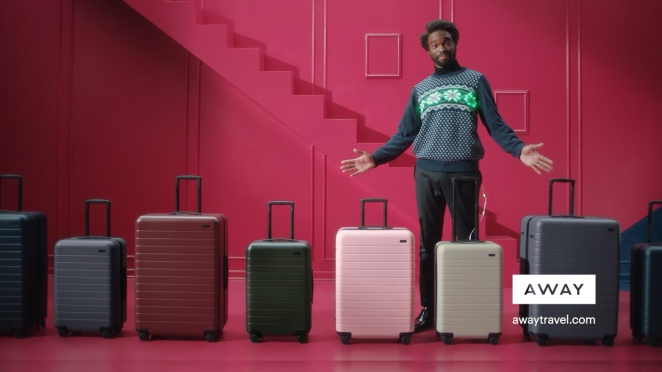
Mark: I would’ve allowed myself to deviate from “the plan” more. I was very focused on figuring out what I wanted to do as an adult that I didn’t really give myself room to explore or travel and generally be aimless.
If you weren’t in your current industry, what would you be doing?
Zach: Making action figures, toys, and games. World building.
Mark: Probably something involving sports. I love coaching and building teams. I could see myself working within a professional sports organization.
What’s your one big dream for the future of the industry?
Zach: I’d like to see a meaningful evolution of branded content so that real brand sponsorship could replace ads in streaming & TV and be partners in creative long-form entertainment.
Mark: A continued focus on the quality of content. Just because we need to make more content at a rapid pace, doesn’t mean it’s not valuable. It still needs to be compelling and entertaining.
What are your top tips for aspiring creative professionals?
Zach: Make things, anything, always be creating.
Mark: What Zach said. Don’t wait for opportunities. Make the stuff you want to see.
What are your top tips for other creative leaders?
Zach: Listen, and take a page from the improv rule of starting with “Yes, and…” In a collaborative creative studio, we benefit greatly from everyone’s ideas and build from them together.
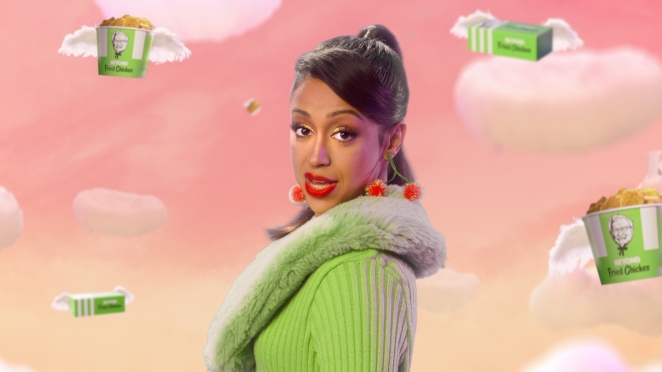
Mark: Let the process happen. Everyone moves at different speeds, just because you know where it needs to go doesn’t mean you shouldn’t give your employees and collaborators the time and space to figure it out themselves.
When you think about your team, what is the thing that matters to you the most?
Zach: Curiosity and Respect. Respect for each other, respect for the clients, and respect for the company - so much of every job and workplace is a two-way street. Curiosity. Curiosity is the foundation of everything, top to bottom. I can and will support and embrace curiosity every day.
Mark: Attention to detail. The details are what separate good from great, winning from losing, making a profit or taking a hit.
Do you have any websites, books or resources you would recommend?
Zach: I just finished reading Faith, Hope, Carnage - by Nick Cave & Sean O’Hagan. I started to read it as a fan but found it even more relevant to what we do than I expected. It is a fascinatingly intimate exploration of Nick’s creative experience, creative career, loss, and hope.
Mark: Actual Source puts out all kinds of amazing books. It’s very design-centric but good for rattling your brain and inspiring you to look at problems in a different light. A Pattern Language is also a great book. It’s super dense, but it points out the patterns of human behavior that exist all around us.

